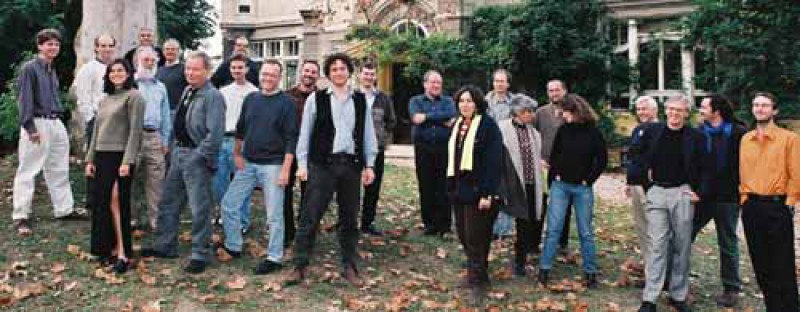The KLI Labs provide an experimental space for alternative formats such as dissussion platforms, practice talks, feedback rounds for manuscript drafts, reading clubs, etc.
Event Details

Picture Gallery
The success of modern science largely depends on the elaboration and investigation of simple systems, whether natural or artificial, as a reflection of the complexity of the actual ones. In general, the number of conceivable interactions among parts (say, the number of logically or even physically possible interactions) largely exceeds the number of interactions that must actually be taken into account to yield system descriptions that are realistic enough. This happy condition was critical for the articulation of classical mechanics, the paradigmatic science of simplicity ("If the deck of cards that Nature dealt to KEPLER and NEWTON was not stacked, it was at least a very lucky deal" - Herbert A. SIMON). But it also extends, albeit less spectacularly, to the complex systems that scientists and engineers are at present learning to handle. In the latter case, the possibility of scientific understanding would seem to crucially depend on the modular character of the "(nearly) decomposable systems" (SIMON) one is interested in. Decomposition allows the subdivision of the explanatory task into manageable chunks. A decomposable system is modular in that each component or module operates primarily according to its own, intrinsically determined principles. Each component is dependent at most upon inputs from other components, influences other components only by itsoutputs, and has a specific, intrinsic function. For instance, in the case of biological evolution, a module of selection may be regarded as a set of genes, their products and interactions (their developmental pathways), the resulting character complex, and the functional effect of that complex. The primary function of the module is phenotypic selection - an ecological process. The genes affecting the character complex serving the ecological function must have a high degree of internal integration and a low degree of external connectivity (pleiotropic connections must largely be within-module). For BRANDON (1999a) following WAGNER and ALTENBERG (1996), such modules are the true units of selection. Thinking in terms of modularity has quite an impressive track record in biology and psychology including, e.g., GALL's phrenology, 19th and 20th century debates in physiology and genetics, or Leibniz' monadology. At present, the existence of modules is recognized at all levels of biological organization (CALABRETTA et al. 1996). Also, it has been claimed that modularity can be precisely defined in terms of a biophysically grounded model of a genotype-phenotype map (ANCEL and FONTANA 1999). Modularity is a central concept in both the neurosciences and computer science. In cognitive science, a lively debate on the topic was occasioned by FODOR's The Modularity of Mind (1983), and an entire new discipline, evolutionary psychology, is grounded on the "swiss army knife" model of perception and cognition. We think the time is ripe to bring together experts in the fields of developmental and evolutionary biology, artificial life, the neuro- and the cognitive sciences, and systems theory, to try to bring about a useful knowledge transfer between these diverse disciplines. As a general goal the workshop will try to clarify what modules are, why and how they emerge and change, and what this implies for our respective research agendas. In a way, the current situation looks paradoxical: * One cluster of scientists - roughly, those working in the cognitive field, have invested considerably in the symbolic-computational paradigm for the study of mind. As the field has begun to converge on computationalism, several rather fundamental methodological conflicts, threatening its coherence, have become discernible. They have to do mainly with assumptions about the modular structure of the mind and, accordingly, about what constitute natural cognitive domains for scientific analysis (e.g., HENDRIKS-JANSEN 1996). While hotly debating the pros and cons of conceiving the (human) brain/mind in terms o


